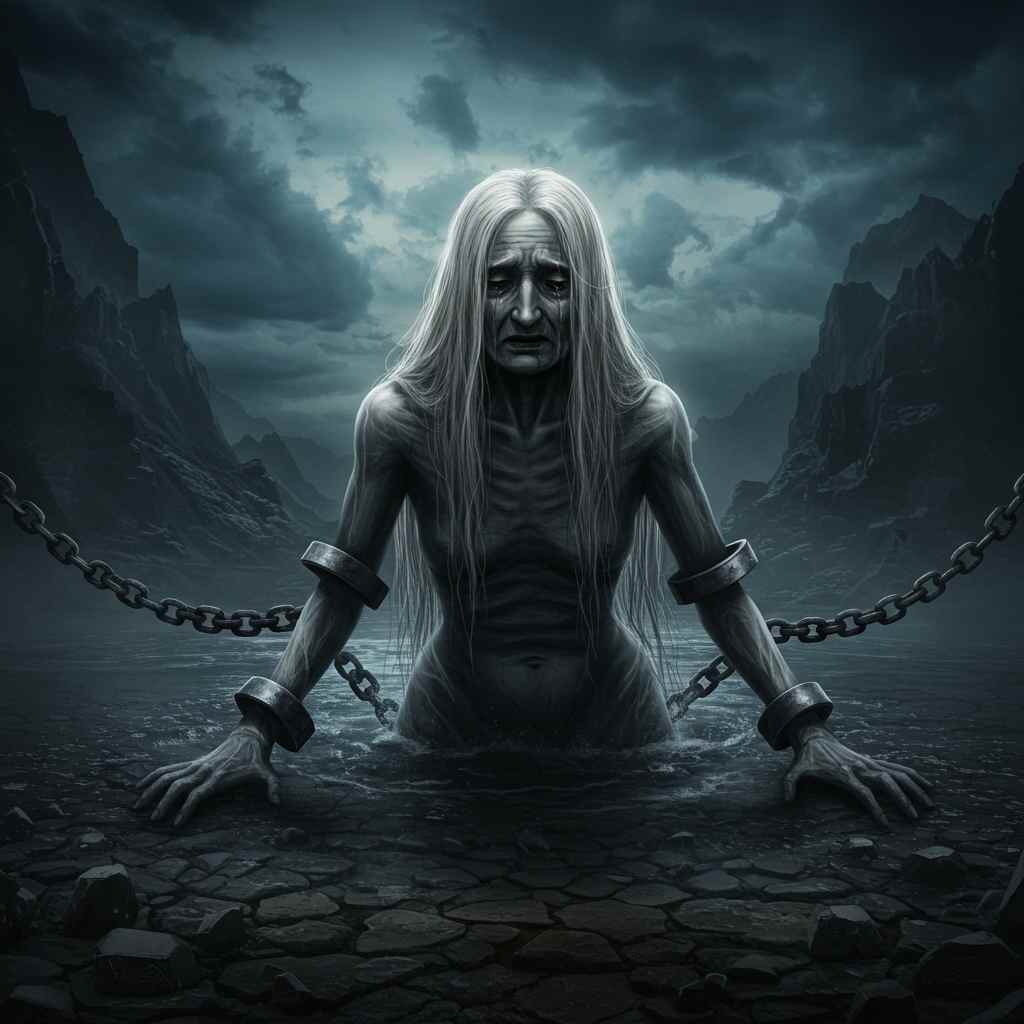Earth's Answer
William Blake
1757 to 1827

Want to track your favorites? Reopen or create a unique username. No personal details are required!
Earth raised up her head
From the darkness dread and drear,
Her light fled,
Stony, dread,
And her locks covered with grey despair.
'Prisoned on watery shore,
Starry jealousy does keep my den
Cold and hoar;
Weeping o'er,
I hear the father of the ancient men.
'Selfish father of men!
Cruel, jealous, selfish fear!
Can delight,
Chained in night,
The virgins of youth and morning bear.
'Does spring hide its joy,
When buds and blossoms grow?
Does the sower
Sow by night,
Or the ploughman in darkness plough?
'Break this heavy chain,
That does freeze my bones around!
Selfish, vain,
Eternal bane,
That free love with bondage bound.'
William Blake's Earth's Answer
William Blake’s Earth’s Answer emerges as a searing critique of institutional oppression, intertwining themes of rebellion, stifled vitality, and the corrosive effects of authoritarian control. Written during the Industrial Revolution and published in Songs of Experience (1794), the poem channels Blake’s revolutionary ethos, rejecting the era’s mechanistic rationalism and moral rigidity. Through vivid personification and symbolic imagery, Blake positions the Earth as a defiant voice against forces that enslave both nature and humanity. This analysis explores the poem’s historical context, literary devices, and philosophical undertones, revealing its enduring resonance as a manifesto for liberation.
Historical and Cultural Context
Blake composed Earth’s Answer amid profound societal shifts: the rise of industrial capitalism, Enlightenment rationalism, and political revolutions. The poem’s lament against “Starry jealousy” and the “Selfish father of men” reflects Blake’s disdain for institutions-religious, political, and economic-that perpetuated exploitation. The Industrial Revolution’s dehumanizing labor practices and environmental degradation are metaphorized in the Earth’s “grey despair” and imprisonment on a “watery shore” 512. Blake, influenced by radical dissenters and the French Revolution’s ideals, frames the Earth’s struggle as a microcosm of broader human suffering under systemic oppression 412. His critique extends to the Church of England, whose moral doctrines he saw as repressive, symbolized by the “heavy chain” binding “free Love” 711.
Literary Devices and Symbolism
Personification and Feminine Resistance
The Earth is personified as a weary yet defiant female figure, her “locks covered with grey despair” evoking both aging and ecological decay. This gendered portrayal aligns with Blake’s frequent association of nature with femininity, contrasting patriarchal authority’s destructive force. The Earth’s voice-raw and accusatory-challenges the “Selfish father,” a stand-in for God, monarchy, or institutional religion 19. Her rebellion is not passive; she demands action: “Break this heavy chain,” a rallying cry against subjugation 711.
Metaphors of Confinement
-
“Starry jealousy”: Celestial imagery paradoxically represents oppressive divine forces, perhaps the Ten Commandments or moral laws that stifle human passion 79.
-
“Chain’d in night”: Darkness symbolizes ignorance and moral repression, contrasting with the natural vitality of spring and daylight 811.
-
“Free Love with bondage bound”: Blake critiques societal norms that equate sexual freedom with sin, advocating instead for love liberated from shame 714.
Rhetorical Questions
The Earth’s interrogation-“Does spring hide its joy / When buds and blossoms grow?”-undermines the logic of oppression. By juxtaposing natural cycles with unnatural constraints (sowing “by night”), Blake highlights the absurdity of suppressing innate desires 811.
Themes and Philosophical Underpinnings
Liberation vs. Oppression
The poem’s central tension lies between the Earth’s yearning for freedom and the “eternal bane” of societal chains. Blake, a visionary who rejected Enlightenment empiricism, frames liberation as both spiritual and physical. The Earth’s plea to reclaim “virgins of youth and morning” mirrors his belief in reclaiming innocence through revolutionary change 46.
Critique of Authoritarianism
The “Selfish father” embodies Blake’s disdain for hierarchical power. In The Marriage of Heaven and Hell, he writes, “Prisons are built with stones of Law,” a sentiment echoed here. The Earth’s imprisonment reflects the plight of laborers, women, and dissenters marginalized by industrial and religious institutions 512.
Nature as a Site of Resistance
Blake contrasts sterile rationality (“Stony dread”) with organic growth (“buds and blossoms”). The Earth’s vitality, though suppressed, persists-a metaphor for the indomitable human spirit. This aligns with Romanticism’s reverence for nature as a counterforce to industrialization 68.
Biographical and Comparative Insights
Blake’s radicalism permeates the poem. His rejection of Hayley’s patronage and legal battles over sedition charges (source 10) mirror the Earth’s defiance. The poem also resonates with Songs of Innocence: whereas The Lamb celebrates divine benevolence, Earth’s Answer exposes a world corrupted by “jealous fear” 79.
Comparatively, Mary Wollstonecraft’s A Vindication of the Rights of Woman (1792) parallels Blake’s critique of gendered oppression. Both texts frame liberation as essential to societal progress, though Blake’s approach is more mythopoeic 1114.
Emotional Resonance
The Earth’s anguish-“Weeping o’er / I hear the father of the ancient men”-evokes empathy for all marginalized voices. Blake’s exclamations (“Cruel, jealous, selfish fear!”) infuse the poem with urgency, transforming despair into a catalyst for action. The closing imperative (“Break this heavy chain”) transcends its historical moment, speaking to modern struggles for environmental and social justice 58.
Conclusion
Earth’s Answer remains a cornerstone of Blake’s legacy, fusing poetic innovation with radical theology. Its indictment of oppression-whether clerical, political, or ecological-challenges readers to confront systems that stifle creativity and compassion. By giving voice to a suffering Earth, Blake not only critiques his own era but also foreshadows contemporary dialogues about freedom and responsibility. The poem’s power lies in its unflinching demand: to dismantle the chains of fear and usher in a dawn where “free Love” reigns.
This text was generated by AI and is for reference only. Learn more

